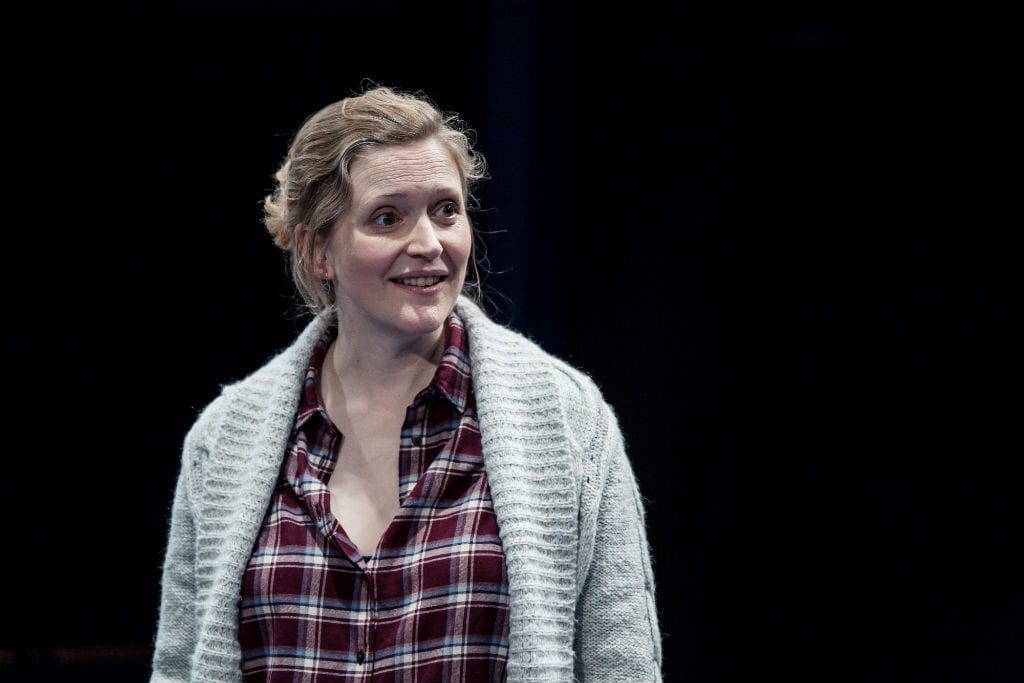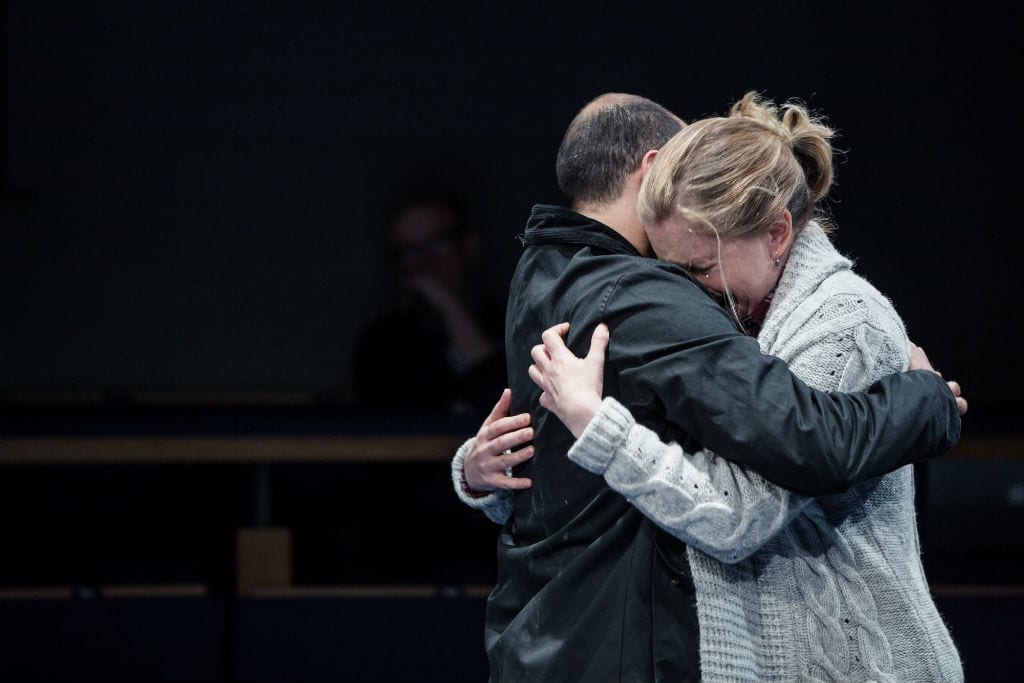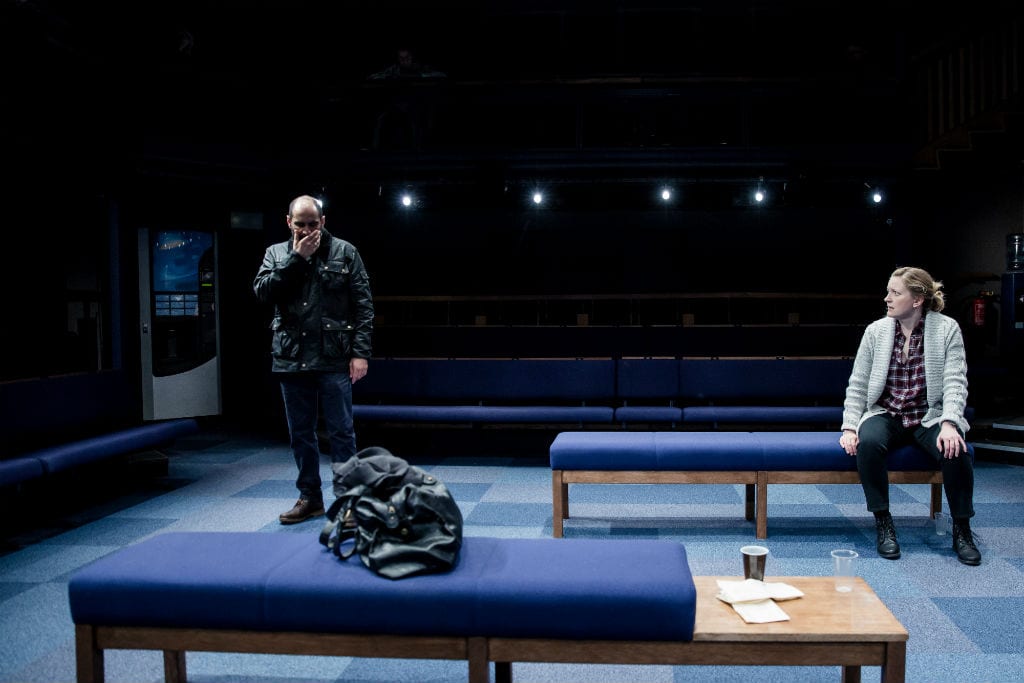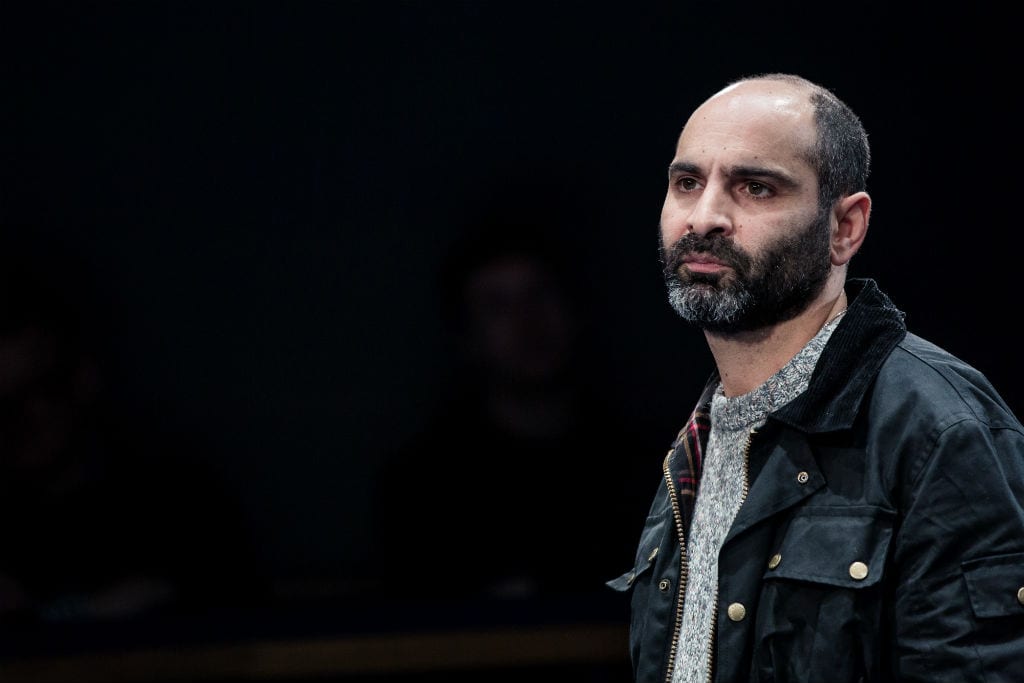This is a play about loss and grief. Although it is short, it packs a great deal of emotion into its 80 minutes and raises some troubling issues about how people cope with – and sometimes fail to cope with – tragic situations. In the intimate space of the Orange Tree’s theatre-in-the-round, it is at times almost overwhelming.
A man and a woman meet in the chapel of a cemetery. It gradually emerges that they are the estranged parents of a dead child and that they have not met for nine years. The reason for the meeting appears to be that their son’s grave needs to be moved but the real reason – and the circumstances that led to their separation – are slowly revealed in dialogue that is almost always terse, in short phrases. Neither seems able to speak with any fluency about their past and the few longer passages of speech are all the more significant in this desert of concealed misery.
Both actors are superb. Zubin Varla plays ‘He’ – why no name? He is brilliant at conveying the buttoned-up veneer that he has chosen to cultivate over the years to protect his sanity but it begins to crack as ‘She’ – Claire Price portraying a bereaved and blocked mother – asks the obvious questions about his departure and his new life. It emerges that both of them are – understandably – still tormented by grief but have found entirely different ways to live with their misery. As more emerges about the different ways they have coped – and their anger and frustration at the other’s response is expressed – the sadness of their predicament is underscored. The one aspect that I wished was more fully explained was the nature of their relationship before the death of their son – we learn little about that.
The space in which the action takes place is bare and bleak – two benches, a coffee machine, and a water cooler. Paul Miller keeps the actors circling each other in a wary stand-off. It sometimes seems that ‘He’ would like to be able to comfort ‘She’ but the couple of moments when there is physical contact are quickly over – as if both fear that there is a barrier that it would be dangerous to break. Indeed, the lack of one moment of unrestrained grief is one of the elements of the play that intensifies the sense of just how unfinished and sad is the whole situation.
This is a play that is well worth seeing, both for the intense and thoughtful way it deals with bereavement and with life after a death – and for the gripping performances of the two actors.




